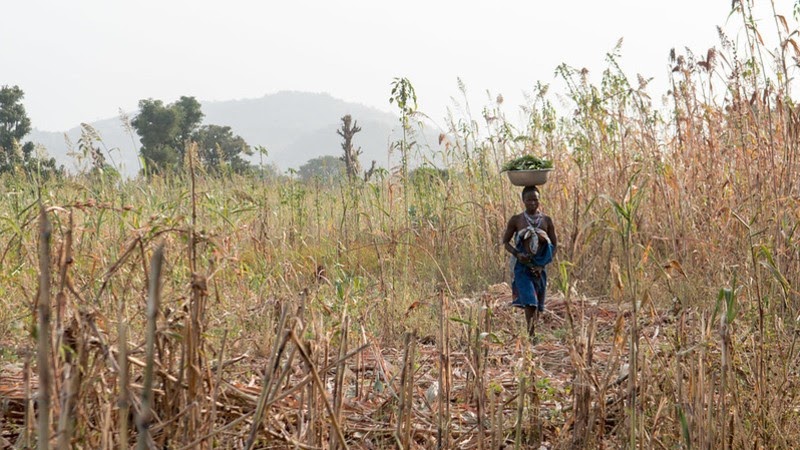Read in
Nigeria is one of the most blessed places on the planet when it comes to its potential to produce food crops: from cash crops like sesame and cocoa to consumer staples like rice and cassava and a wide array of fruit and vegetables.
The year 2009 saw the Boko Haram Islamist movement begin to gain widespread notoriety when nearly 1,000 were killed in clashes between the sect and the military. From there, the problem escalated. I remember the first Abuja bombing on Independence Day the following year. I was rushing to pick up T-shirts for a party I was planning when I heard the explosion. A bomb was the furthest thing from anyone’s mind at that point, but over the next decade, acts of violence and terrorism became a lot more commonplace.
Continuing conflicts
According to The Council of Foreign Relations’ Nigeria Security Tracker, between 2011 and 2022, 41,659 lives have been lost in Nigeria’s conflict with Boko Haram. This does not account for other types of insecurity, such as the banditry also plaguing farming communities and the continuing conflict between farmers and armed herdsmen.
The Food and Agriculture Organisation (FAO) Food Production Index, a measure of a country’s food production capacity, states that Nigeria has steadily increased from an index value of 86 in 2010 to 106.6 in 2019, and has steadily surpassed the UK, China, and the US. On paper, this sounds amazing, but the reality is significantly more nuanced.
In Nigeria, the term ‘banditry’ is used to describe a range of criminal activities but usually refers to armed gangs involved in kidnapping, theft, and extortion. These crimes are profit driven and bandits know the value of each agronomic hectare. Attacks are often targeted at commercial farm projects where they can make money or find ransom-worthy targets.
I recently met with an official of a cassava starch production company that had decided to invest in producing their own feedstock, in line with the government’s backward integration drive. The Federal Government is actively encouraging companies to produce their own raw materials to reduce reliance on imports and create jobs. This company began with 500 hectares of a 2,500-hectare pilot project in Ekiti State. As they prepared for harvest, herdsmen raided the entire 500 hectares; over N300,000,000 ($699,743) worth of investment was gone, with absolutely no recourse.
Agricultural mafioso
This planting season, a large number of farm-gate extortion cases have been reported, with bandits demanding a levy to allow farming to continue uninterrupted. For some, this mafia-style arrangement gives them peace of mind allowing them to factor it into their running costs, whereas for others it is financially crippling.
Owuno Ogbeh, the founder and CEO of Farm More Limited, has had his fair share of run-ins with bandits. The worst was when he was walking on a farm in Kaduna. He told me he looked down at the ground and noticed bullets landing at his feet. He saw the bullets before even hearing the gunshots and cannot remember getting into the car and speeding away. The bandits gave chase, firing after the vehicle. Unfortunately, a family was driving on the same stretch of road and a young girl was hit. Despite their best efforts to administer first aid, she died on the side of the road.
This was a life-changing moment for Owuno and one of the events that led him to develop the Clusters Project, which harnesses the skills of smallholder farmers by dividing them into clusters across different communities. They are currently developing the first phase of the project with Germany’s international development agency (GIZ) and Owuno says “this is a model that takes insecurity into account and puts farmer safety first”.
The main drivers of insecurity, poverty and lack of opportunity, also need to be addressed.
As insecurity persists, more value chain players are reaching out to the police, army, and local vigilante groups for support. As demand increases, the resources available become even more limited. The Nigerian Security and Civil Defence Corps (NSCDC), a paramilitary arm of the government, have begun deploying Agro Rangers to over 2,500 plantations nationwide. The Agro-Rangers are a security unit with the specific task of protecting farmers and their investments from criminal attacks and this measure is helping.
Cohabitation
We are also seeing companies becoming more creative. Another official I spoke to, from a cassava production facility in Ogun State, says the company has brokered peace with herdsmen in their local vicinity. After continued clashes, they began offering the herdsmen waste cassava peels as feed for their cattle. The herdsmen now co-exist peacefully with the factory and local farmers, highlighting the importance of tackling every situation from a place of empathy.
There are a lot of opportunities to develop technology-based solutions to tackle this challenge. Tech firms can explore security solutions, such as satellite or drone warning systems that could help security forces better deploy their personnel, or affordable IoT alarm systems that alert farmers of crop thefts. Yield insurance is now becoming more popular in Nigeria and there is a huge appetite for farm protection insurance; this is something fin-tech companies already operating in this space could explore.
However, the main drivers of insecurity, poverty and lack of opportunity, also need to be addressed. In the long term, education and reorientation are needed to prevent more youth from joining criminal gangs. Terrorist groups, like Boko Haram, mention poor governance and injustice among the reasons they have taken up arms, and at least a perception of change is needed to stop them.
Insecurity is hampering food production, which is truly unfortunate, as agriculture is one of the biggest generators of opportunity in rural areas. It is, however, hard to appreciate the bigger picture when the system hasn’t worked for you.



